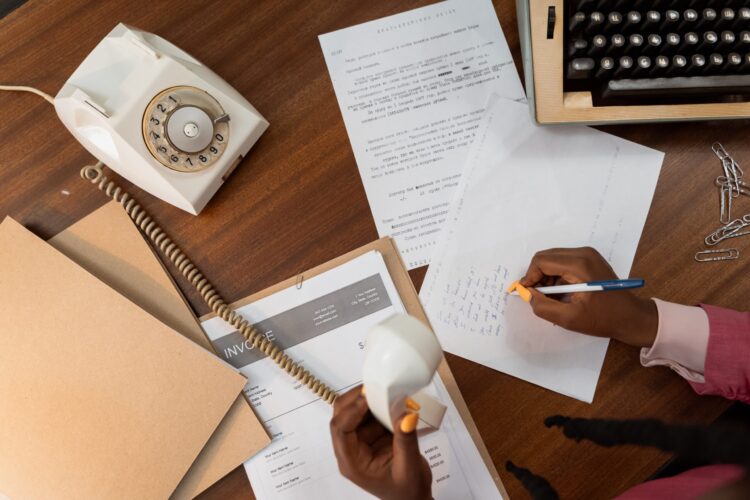Some work situations can be a bit unnerving. Let’s imagine you copyedit feature articles for an online publication. Generally the managing editor (ME) does a developmental edit on the article and then sends you the article for copyediting. Your latest copyedit comes back to you with list of 17 problems and the following message:
Hi! I just finished reviewing your edit, and I found a lot of problems with it. This was a story I didn’t edit before you did, but I would have thought you would have caught these issues. I’m very surprised by this.
The list of problems is enough to make you question your abilities. You feel attacked and maybe a little sick. You wonder if you’re losing your touch, if you ever had it.
What do you do?
1. Walk Away
First, take a break from the situation. Avoid just doing another work task or scrolling through Facebook, though. You need to change your environment so that you can change your response.
Do something calming: Take a walk. Do some dishes. Grab a cup of tea. Whatever helps you regain your equilibrium.
You can’t think straight if you feel like you’re being attacked or you’re doubting your skills. So work on you first.
2. Review the Feedback
Let’s start with the note. The ME admits that they didn’t do their edit before you did yours. They also say, rather passive-aggressively, “I would have thought you would have caught these issues.”
It sounds like the ME expected you to do their job but didn’t tell you.
Before making any conclusions, review the list of problems. Categorize all the problems the ME pointed out. Which are the copyediter’s responsibility? Which are beyond the scope of the job as you understand it? If you have your responsibilities written down somewhere, review them to be sure you’ve understood everything.
Take ownership for anything that comes under copyediting and let the ME know how you’ll avoid it in the future. This can be as simple as “I’ll make a note of these items and keep an eye out for them next time.”
We all make mistakes and sometimes flub jobs. Owning your mistakes shows that you’re willing to accept responsibility for yours and to improve your work.
For those items that weren’t your responsibility, do not apologize for them. Acknowledge that they are errors but point out (politely) that they weren’t part of your job: “I can see what you mean in items 2 through 15. However, those are developmental edits and I was asked specifically to copyedit.”
3. Solve the Problem
Offer a resolution that both sides can accept. Don’t offer to redo the work or not charge them for it (if you’re a freelancer). First, the ME has already done the work. Redoing it won’t improve the copy.
More importantly, though, this wasn’t your mistake, it was the ME’s. The ME isn’t owed a freebie, no matter how upset they are. Giving them one now will only tell them that it’s OK to let this happen again. After all, you’ve just rewarded them for not doing their job and blaming you for it.
Instead, help solve the problem for the future.
If you’re willing to take on additional editing responsibilities, let the ME know but push for clarity: “I’d be happy to correct for these kinds of errors in future. Let’s work out updated directions.” The key is that they have to tell you what they want before you start work.
If they duck that, when you are given your next assignment, verify what they want before starting work. Sometimes just nudging them encourages them to be clearer in their directions.
It’s OK, though, to want to stick with what you were hired to do. Freelancers might respond with something like: “I don’t currently offer developmental editing, but I could recommend a few editors who do to help you with your workload.”
If you’re an employee, suggest how the process could be tweaked to ensure the higher-level edit happens before the copyedit. Don’t allow them to do a higher-level edit after you copyedit, if possible. Remind them of how errors can creep in if a second copyedit isn’t done and how the second copyedit will cost time and money.
By accepting your own errors and avoiding blame for the remaining errors you can help prevent repetitions of the situation and maintain a good working relationship.
This article originally published on November 2, 2018 on Copyediting,com.


